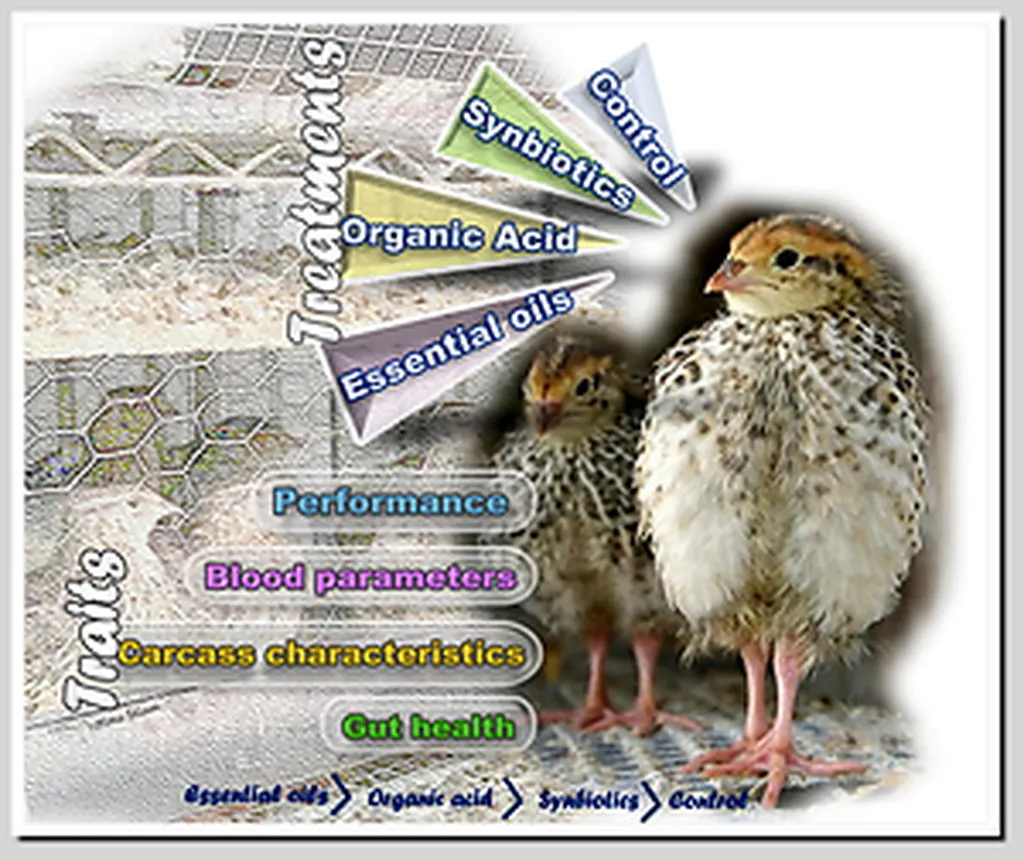In the quest for sustainable and efficient poultry production, researchers have turned to natural, carbohydrate-derived additives to enhance gut health and improve product quality. A recent study published in the *Journal of Agricultural and Food Research* (translated from Arabic as *Journal of Agriculture and Food Research*) has shed light on the potential benefits of dietary chitosan (COS) and mannan oligosaccharide (MOS) for Japanese quail. Led by Hamada S. Saber from the Animal Production Department at Suez Canal University in Egypt, the research offers promising insights for the poultry industry.
The study involved 540 three-week-old Japanese quails, divided into five treatment groups. While the control group received a basal diet, the other groups were supplemented with escalating concentrations of COS and MOS, ranging from 0.1 to 0.4 grams per kilogram of feed. The results were striking. Birds receiving 0.2 grams per kilogram of both COS and MOS exhibited the most significant improvements in egg production parameters, including egg quality and fertility percentage.
“These findings reveal the potential of COS and MOS as natural, carbohydrate-derived additives for enhancing gut health and improving product quality in poultry production systems,” said Saber. The study also found that dietary supplementation with these compounds led to a significant decrease in fat content in the meat, a desirable trait for consumers seeking healthier protein sources.
One of the most compelling aspects of the research is its focus on intestinal histomorphology. The histological analysis of the small intestine revealed improved villus architecture and increased mucosal surface area in birds treated with COS and MOS. This suggests that these additives not only enhance nutrient absorption but also promote a healthier gut environment, which is crucial for overall bird health and productivity.
The implications of this research are far-reaching. As the demand for high-quality, sustainably produced poultry products continues to grow, the use of natural additives like COS and MOS could become a cornerstone of modern poultry nutrition. These findings could shape future developments in the field, encouraging further research into other natural additives and their potential benefits for poultry health and productivity.
For the poultry industry, this research offers a glimpse into a future where natural, cost-effective solutions can enhance production efficiency and product quality. As Saber noted, “The potential of COS and MOS as natural additives is vast, and their integration into poultry diets could revolutionize the industry.” With the publication of this study in the *Journal of Agricultural and Food Research*, the stage is set for a new era of innovation in poultry nutrition and production.

